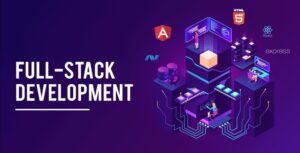Choosing the right approach to building a website is more important than ever in 2025. Whether you’re launching a business site, personal portfolio, blog, or full web app, your options boil down to three main paths: Webflow, WordPress, or coding from scratch. Each has its pros and cons—here’s how to decide.
Webflow: Best for Speed and Design Flexibility
Webflow has matured into one of the most powerful no-code website builders on the market. In 2025, it’s no longer just a design tool—many startups and brands run full-fledged websites and landing pages on Webflow.
Pros:
- Visual-first: Build responsive sites visually, without writing HTML or CSS.
- Speed: Launch marketing sites and landing pages in days, not weeks.
- Design Freedom: More flexible than template-based tools like Squarespace.
- Hosting & SEO: Excellent built-in SEO and fast global CDN.
Cons:
- Complex logic & apps: Still limited for custom app-like behavior.
- Cost: More expensive than open-source alternatives.
- Content limits: Webflow CMS is powerful, but may not scale well for very large content sites.
Best For: Marketing sites, startups, small business sites, landing pages, portfolios.
WordPress: Content-Heavy and Community Driven
WordPress remains the web’s most popular CMS in 2025—now modernized with the Gutenberg block editor and a thriving plugin ecosystem.
Pros:
- Content-first: Excellent for blogs, media-heavy sites, and ecommerce (via WooCommerce).
- Community & Plugins: Thousands of plugins for SEO, security, ecommerce, etc.
- Customizability: Full control over your site if you dive into theme and plugin development.
Cons:
- Performance: Can get slow and bloated if not optimized properly.
- Maintenance: Requires regular updates and security management.
- Learning curve: More technical than Webflow for non-developers.
Best For: Content-heavy websites, blogs, ecommerce, community sites.
Coding from Scratch: Ultimate Control and Scalability
If your project demands complete flexibility—or is more of an app than a website—building it from scratch is still the gold standard.
Pros:
- Unlimited control: No CMS limitations; perfect for highly custom experiences.
- Modern frameworks: React (Next.js), Vue (Nuxt), SvelteKit, etc., offer incredible power in 2025.
- Performance: You can optimize every layer, from rendering to caching.
Cons:
- Time & Cost: Requires significantly more time and developer resources.
- Maintenance burden: You own all the code and the tech stack.
- Not ideal for small marketing sites: Often overkill for simple projects.
Best For: Complex apps, SaaS platforms, high-performance custom sites.
Conclusion: Choose Based on Your Goals
In 2025, the right choice depends on what you’re building and who’s building it:
- Choose Webflow if you need to move fast and care about design polish.
- Choose WordPress if your project is content-heavy or needs a flexible CMS.
- Code from scratch if you’re building a custom app or want ultimate performance and scalability.
Many modern workflows also combine approaches (e.g. marketing site in Webflow, app in Next.js). The best tool is the one that fits your project’s needs—and your team’s strengths.













